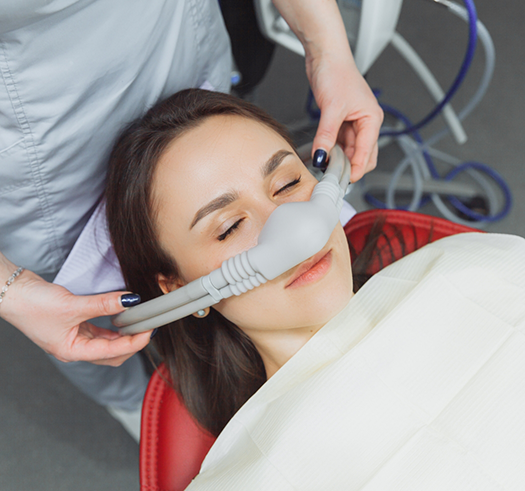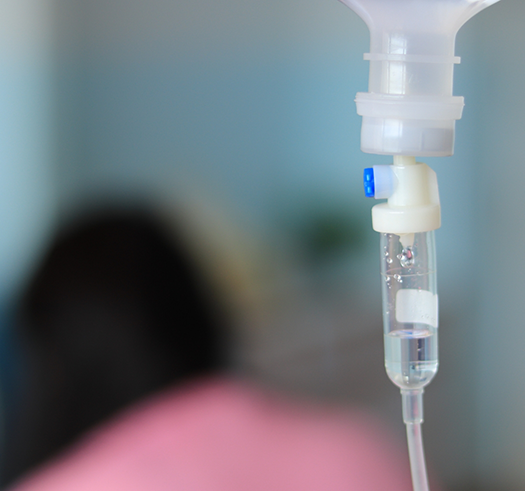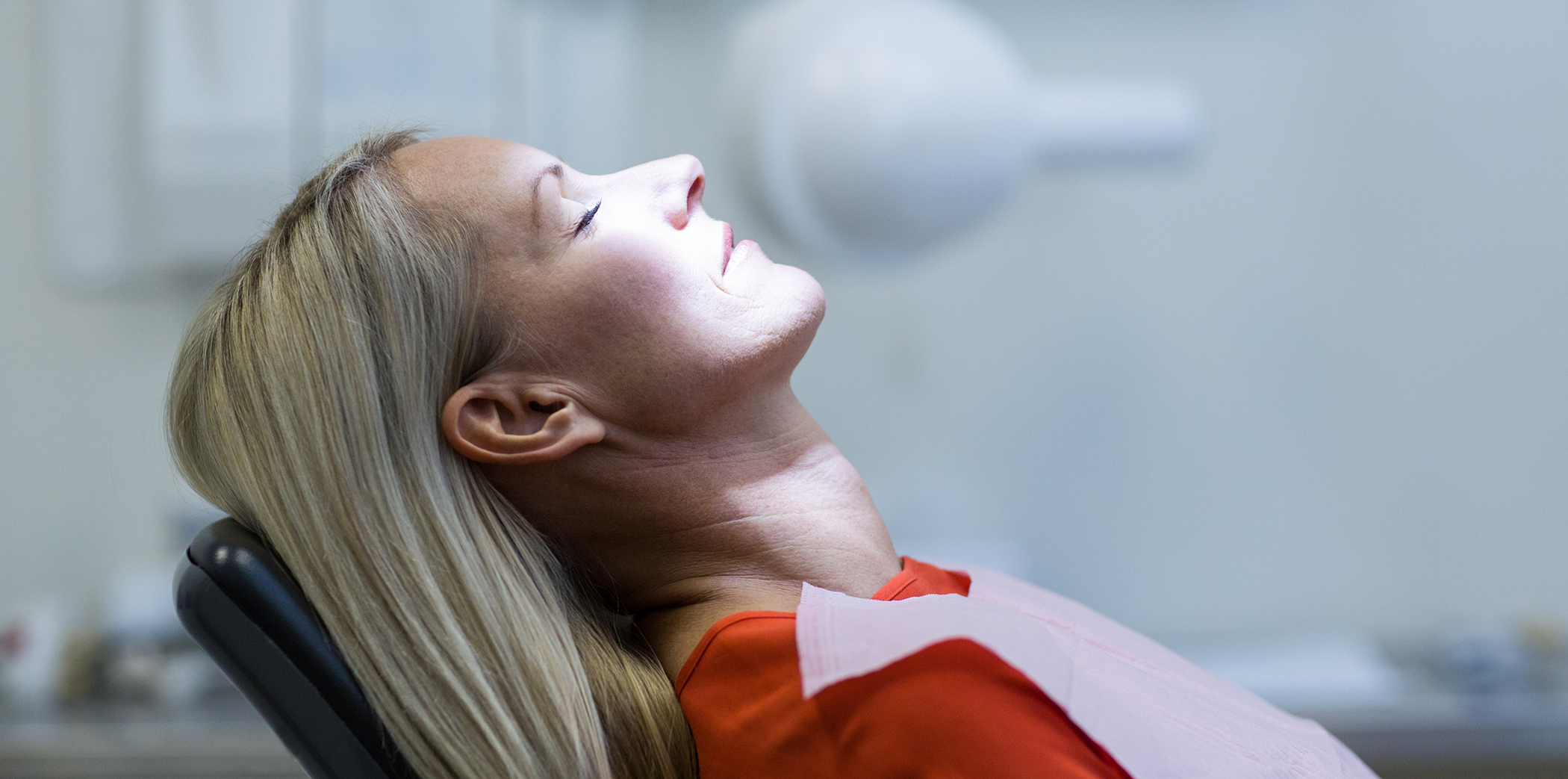Sedation Dentistry Bartlett
Soothing Nerves & Fear with Sedation Dentistry
At Bartlett Dental Specialists, our experts are able to focus on the treatment while the sedation is handled by knowledgeable sedation specialist, Dr. Matthew Manious, who is certified in intravenous conscious sedation as well as the placement and restoration of dental implants. We also offer more mild methods of sedation for patients who experience dental fear or anxiety, like nitrous oxide and oral conscious sedation. To learn whether you qualify for sedation dentistry in Bartlett, give our team a call today.
Why Choose Bartlett Dental Specialists for Sedation Dentistry?
Nitrous Oxide Sedation

Nitrous oxide is one of the mildest methods of sedation that we offer, making it excellent for patients who have mild to moderate dental anxiety. To administer the sedation, a small nose mask is placed onto the face. This will allow you to breathe in a colorless, odorless mixture of nitrous oxide and oxygen. The effects will occur nearly immediately, helping your body and mind feel more relaxed and at-ease in the treatment chair, even euphoric. Once the treatment is complete, our team will have you breathe in oxygen to help the effects of the nitrous oxide dissipate, allowing you to carry on with your day as you normally would.
Oral Conscious Sedation

Oral conscious sedation is excellent for patients who need to undergo lengthier treatments or for those with more moderate dental phobia. Our team will prescribe you a single pill to take about an hour before your appointment. That way, when you arrive, you’ll feel more comfortable and less anxious. Because the effects can linger for several hours, you’ll need to prepare for a trusted friend or family member to drop you off and pick you up from our office.
IV Sedation

IV sedation is administered directly into the bloodstream via an intravenous line during your appointment. This service is provided by our experienced sedation dentist in Bartlett, Dr. Manious, who completed his certification in intravenous conscious sedation. The effects of the medication can last for up to 24 hours, so in that time, it’s important to avoid driving, working, and vigorous activities. IV sedation also has amnesic effects, meaning it’s likely that you won’t remember many details of your appointment or treatment.
General Anesthesiology (“Sleep Dentistry”)

General anesthesia is the only method of sedation that we offer that renders our patients completely unconscious during their treatment, meaning you won’t remember any aspect of your procedure and will be completely asleep until your procedure is complete. This sedation method is also administered intravenously for fast-acting effects, and it’s recommended for patients undergoing more complex oral surgical procedures or multiple procedures at once.

